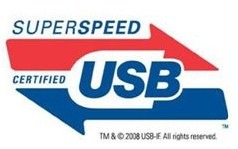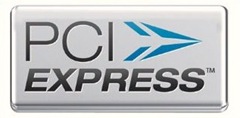 One of the fundamental principles of economics is that greater competition helps to drive down pricing. Well, we’ve got some great economic news for the SuperSpeed USB market: The USB Implementers ForumUSB Implementers Forum (USB-IF) has announced the second certified SuperSpeed USB host controller to pass USB testing certification: the FL1000 by Fresco Logic. This marks an important step in industry adoption of SuperSpeed USB solutions, and promises some major benefits for developers and consumers alike.
One of the fundamental principles of economics is that greater competition helps to drive down pricing. Well, we’ve got some great economic news for the SuperSpeed USB market: The USB Implementers ForumUSB Implementers Forum (USB-IF) has announced the second certified SuperSpeed USB host controller to pass USB testing certification: the FL1000 by Fresco Logic. This marks an important step in industry adoption of SuperSpeed USB solutions, and promises some major benefits for developers and consumers alike.
Having two certified host controllers helps create a competitive marketplace that ultimately delivers the best and most cost-efficient product to consumers. The NEC µPD720200 was the first host controller to pass SuperSpeed USB certification in September 2009. We can only expect that this latest release is the first trickle in a wave of SuperSpeed USB 3.0 host controller options.
“Certification of additional products supports second source alternatives and competitive ecosystems; the second certified USB 3.0 host controller builds upon the industry momentum for SuperSpeed USB, providing OEMs a crucial building block as they work to bring their SuperSpeed USB products to consumers worldwide,” said Jeff Ravencraft, USB-IF president, in a recent release. “We are pleased with Fresco Logic’s contribution to the SuperSpeed USB ecosystem with its certified host controller. Certification ensures the best experience for consumers, and we encourage all companies developing SuperSpeed USB products to seek certification.”
Certification demonstrates that a product complies with industry standards and shows that it will be interoperable with other devices currently on the market. With these certified host controllers, designers can develop external hard drives, SSDs, flash drives and computers to take advantage of SuperSpeed USB technology, while still being fully backward compatible with USB 2.0 products currently available. For more information on USB certification testing, testing for other industry standards, or for questions on designing end-products using SuperSpeed USB host controllers, contact Allion today.
 A few months ago, we wrote about the industry’s anticipation for the latest version of the PCI Express (PCIe) specification. Well, the wait is finally over: the PCI Special Interest Group (PCI-SIG) has officially released PCIe Base 3.0. These
A few months ago, we wrote about the industry’s anticipation for the latest version of the PCI Express (PCIe) specification. Well, the wait is finally over: the PCI Special Interest Group (PCI-SIG) has officially released PCIe Base 3.0. These